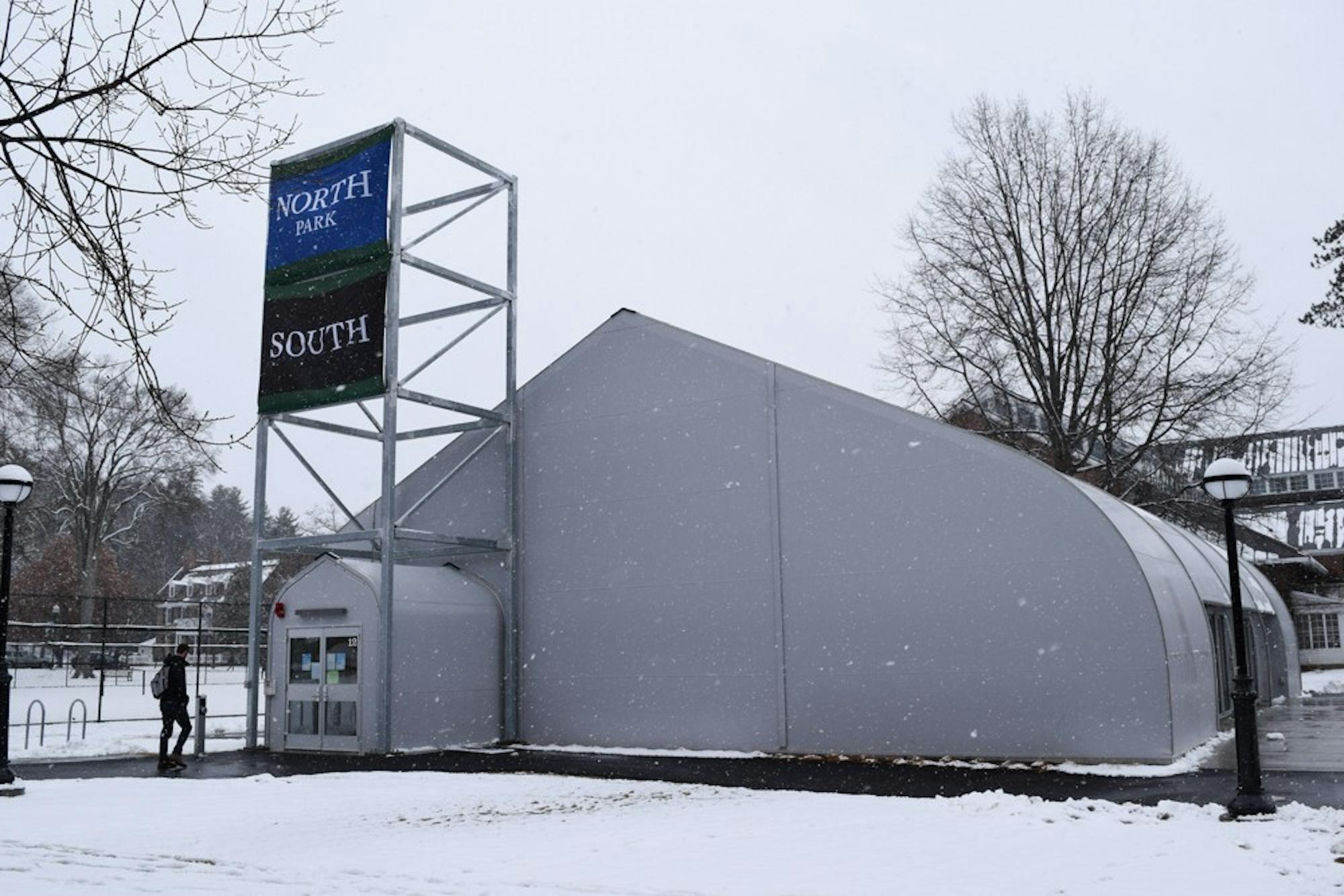This week marks the beginning of a series of mini-seminars hosted by the house communities. Each house community will offer several seminars on various topics, such as climate change, emotional intelligence and exploring autobiography through comic books.
Dean of the College and current initiative leader Rebecca Biron said the mini-seminars aim to provide opportunities for intellectual engagement outside the classroom.
“The idea is that they will be informal, low-stakes and brief and will allow faculty, staff and students to think together through a topic that they may not have a chance to work on together in the formal classroom,” she said.
South House professor Kathryn Lively said in an email statement that the mini-seminars offer a more casual way for students to interact with their peers and faculty.
As the program is being offered by the residential housing system, participating faculty members were divided up by house. Professors who were already a member of a house were assigned to teach at their own house, and the others were distributed such that each house will offer at least two seminars. School House is offering five seminars this term, the most of all the houses, Biron said.
An aim of the program is to build intellectual communities within the houses, but each seminar is open to everyone regardless of house membership. Faculty, staff and students are all encouraged to participate. Each seminar will span a total of three hours, divided among two or three sessions.
Many of the faculty members participating in the series are speaking about topics that they do not normally teach or expand upon their own research areas, Biron said. Some of the lectures, which may correspond to existing classes, offer an informal opportunity for students to get a sense of a class they are not taking.
For example, professor of Asian and Middle Eastern languages and literatures Wen Xing will be offering a seminar on fractal calligraphy through School House. He has been teaching Chinese calligraphy at Dartmouth for many years, and his class is typically fully enrolled with a long waiting list, he said. The mini-seminar will offer the opportunity for more students to experience his teaching on the topic.
Fractal calligraphy is the study of calligraphy in the context of geometry and mathematics. Though Xing will focus on the discipline as it applies to Chinese calligraphy, it can also be applied to calligraphy of any language, he said. His seminar will cover the basics of Chinese calligraphy and fractal art and then introduce a method of producing fractal art using Adobe Photoshop.
Professors applying to the program could choose one of four broad categories for their seminar, Biron said. One option was to present a piece through Intergroup Dialogue, a multi-part program offered by the Office of Pluralism and Leadership that connects faculty and students across social identity groups. A second option was “Telling My Story,” which is another program on campus run by women’s, gender and sexuality studies professor Pati Hernández. Professors could also present on emotional intelligence and learn from facilitators in the Student Wellness Center how to lead workshops on the topic. A fourth option was to design their own seminar and work with one of Dartmouth’s instructional designers to create an interactive mini-seminar.
“The goal was to have the faculty choose one of those four themes and then work with some of our campus pedagogical experts in developing new ways to participate with students as co-learners,” Biron said.
The program is sponsored by the Arthur Vining Davis Foundation, which seeks to support various innovative educational initiatives. The organization took an interest in helping to inaugurate Dartmouth’s new residential housing system and experiment in methods of strengthening intellectual community within the houses, Biron said.
Lively wrote that she believes the mini-seminars are consistent with the aims of the house system.
As a pilot program this winter, Biron is looking to assess enrollment in each seminar, scheduling, advertising and topics of interest during this initial run of the program.




